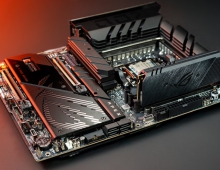
AMD Will Not Enter The Smartphone Chip Market
AMD, the world's second chipmaker, will not make low-power chips for smartphones - at least for now - as the company is currently enjoying a series of wins from Sony, Microsoft and Nintendo?s gaming consoles.
AMD and Intel have been using the same x86 CPU technology in computers so far, but now the two companies are trying diversify their chip offerings. Intel is trying to catch up with smaller companies who have been making ARM-based low-power chips for smartphones and mobile devices, while also trying to promote its advanced chip foundry business and attract new clients. On the other hand, AMD is diverging to play its strength in graphics capability. The newly announced gaming consoles ny Sony, AMD and Nintendo are all powered by AMD's custom-made accelerated processing units (APUs), which combine central processing units (CPU) and graphics processing units (GPU) into a single-chip.
Speaking to GulfNews.com, Lisa Su, senior vice-president and GM of global business units for AMD, said that although mobile devices like tablets and hybrids are important, AMD is not focused on smartphones and has no plans to enter the smartphone market. AMD has recently released APUs for tablets and hybrids - the third-generation Kabini, Tamesh and Richland.
AMD has been also open to operating system options beyond Microsoft?s Windows 8. The company has recently won the GPU contract for Apple?s new Mac Pro.
Speaking to GulfNews.com, Lisa Su, senior vice-president and GM of global business units for AMD, said that although mobile devices like tablets and hybrids are important, AMD is not focused on smartphones and has no plans to enter the smartphone market. AMD has recently released APUs for tablets and hybrids - the third-generation Kabini, Tamesh and Richland.
AMD has been also open to operating system options beyond Microsoft?s Windows 8. The company has recently won the GPU contract for Apple?s new Mac Pro.





















